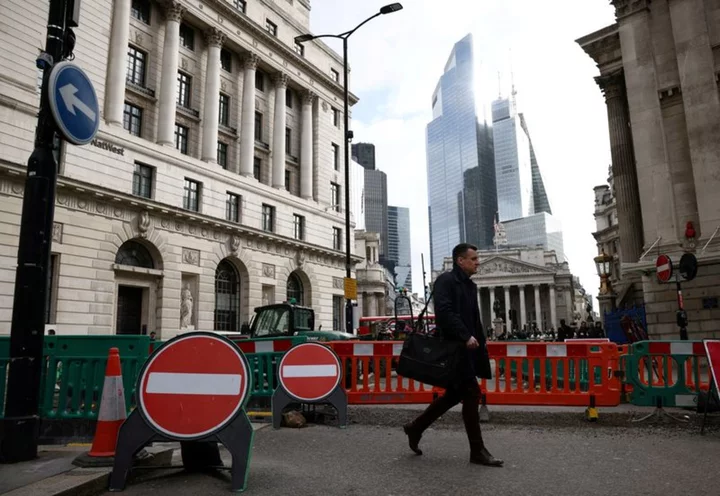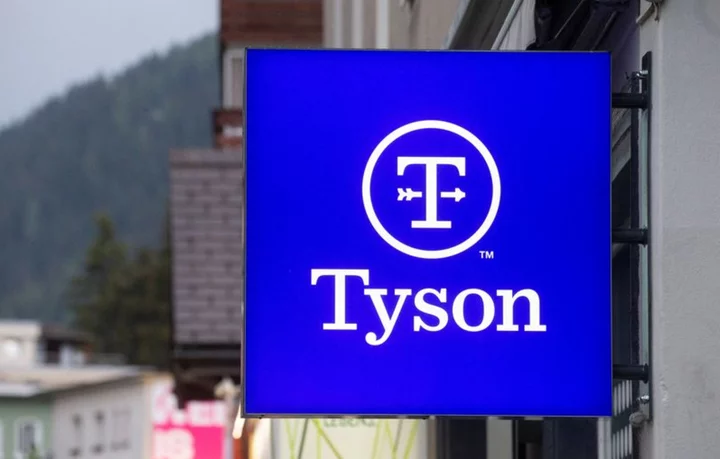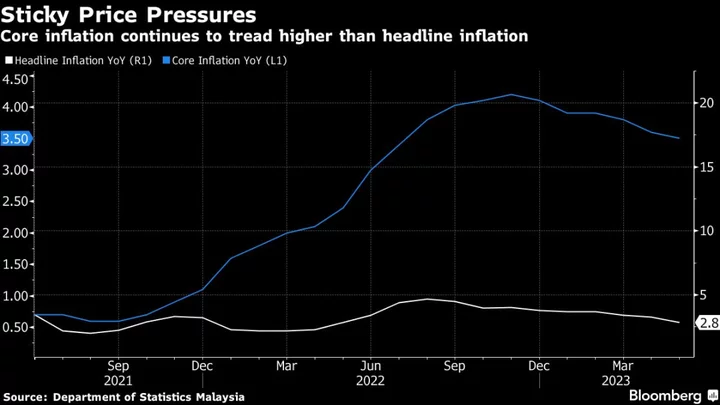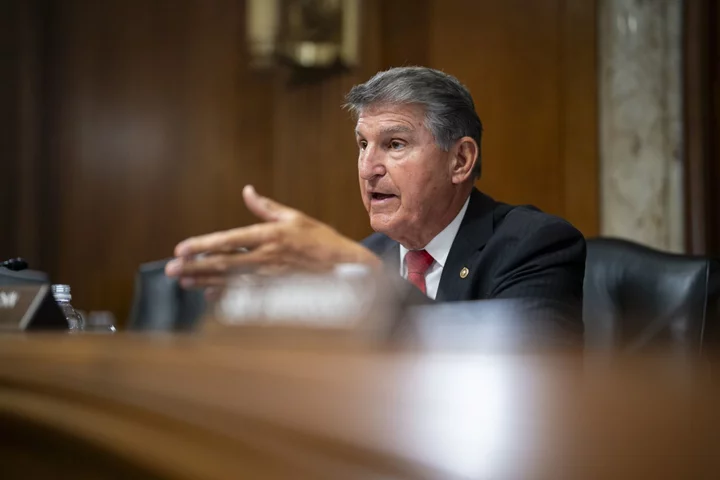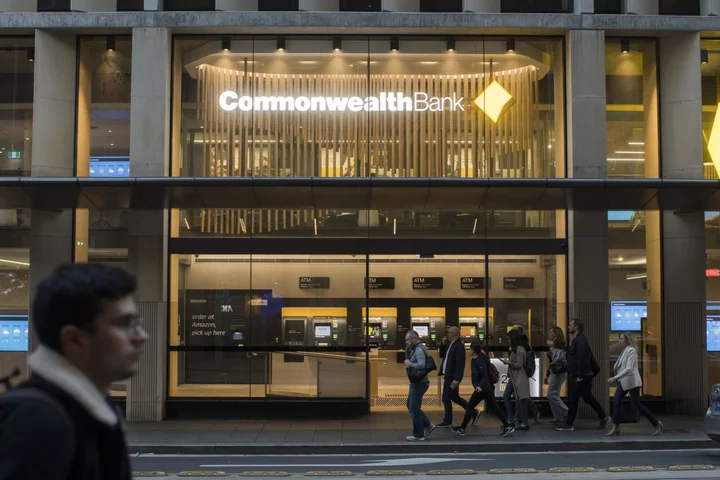By William Schomberg
LONDON The Bank of England (BoE) is poised to raise borrowing costs for the 12th meeting in a row on Thursday, as it tries to tackle stubbornly high inflation that stands at double the level of the United States and much higher than in the euro zone too.
Investors are fully pricing in another quarter-of-a-percentage point increase in Bank Rate, taking the BoE's benchmark rate to 4.5%, when the Monetary Policy Committee (MPC) announces the outcome of its May policy meeting at 12 p.m. (1100 GMT).
Markets' main focus will be any signals from the BoE about the likelihood of further rises in the months ahead.
A poll of economists by Reuters earlier this month showed most expected the BoE would hold rates at 4.5% for the remainder of this year after an increase in May.
But Goldman Sachs is now forecasting that borrowing costs in Britain will keep on going up to a peak of 5% in August after recent data showed little let-up in price pressures and an economy that is defying forecasts of a recession.
"We expect that the Bank will only start to reduce rates from 2024 Q2 given resilient growth momentum," Goldman Sachs economist James Moberly told clients this week.
The prospect of further rate hikes adds to the dilemma for the BoE, which was the first major central bank to start raising borrowing costs in December 2021 but which has been accused by critics of not moving aggressively enough as inflation headed towards a four-decade high of 11.1% struck in October.
Two of the nine MPC members - Swati Dhingra and Silvana Tenreyro - voted in March to keep rates on hold and are expected to have done so again in May because they think the full impact of the BoE's 11 rate hikes to date has yet to be felt.
PERSISTENT INFLATION
But Governor Andrew Bailey and most of his colleagues have shown they remain uneasy with an inflation rate that held above 10% in March - more than five times their target - with pay growth also far above its historical average.
"We have to be very alert to any signs of persistent inflationary pressures," Bailey said on March 27, before the latest round of data showed inflation fell less than expected. "If they become evident, further monetary tightening would be required."
Last week, the U.S. Federal Reserve and the European Central Bank both raised their benchmark borrowing rates by 25 basis points. While Fed Chair Jerome Powell hinted at a pause, ECB President Christine Lagarde said it was too soon to stop.
Britain's high inflation problem stems in large part from its heavy dependence on imported natural gas for power generation, leaving it particularly exposed to the surge in energy prices after Russia's invasion of Ukraine last year.
The impact of that price surge is likely to fade quickly from the inflation data in the coming months. But the BoE is worried that the recent rise in pay growth could turn into a long-lasting problem for the economy.
Its chief economist Huw Pill said last month that British businesses and individuals had to accept that their earnings had fallen in inflation-adjusted terms, triggering a wave of criticism from trade unions and some former BoE rate-setters.
The BoE is expected to revise up its forecast for the economy in 2023 after its stronger-than-expected start to the year, although it is likely to paint a picture of very slow growth due to weak productivity and the after-effects of Brexit.
The central bank is also likely to increase its inflation forecasts.
Bailey and other top officials from the BoE are due to hold a news conference at 12:30 p.m. (1130 GMT).
(Writing by William Schomberg; Editing by Alex Richardson)

